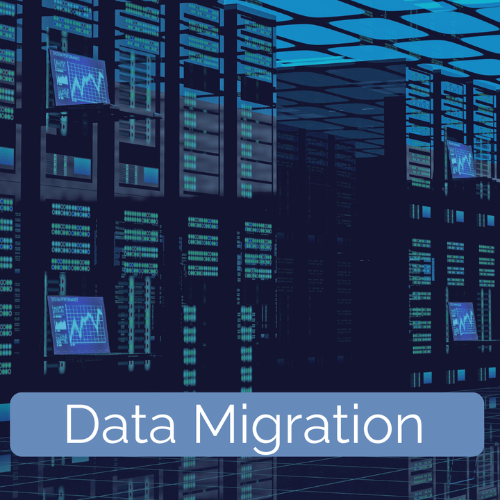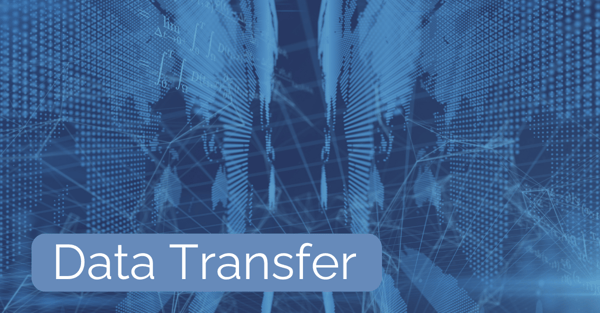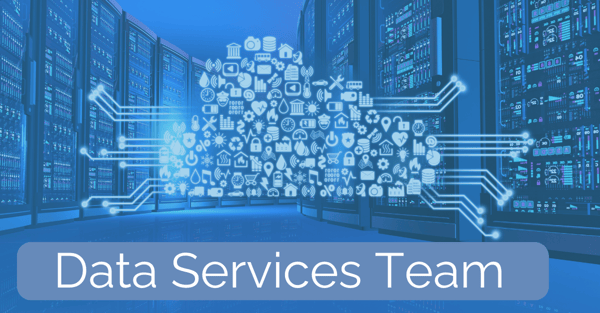Solving the Data Migration Nightmare
6 minute read

Data migrations are like a trip to the dentist, often expensive, painful, drawn out and a minefield of technical terms. Law firms want to avoid them (but have no choice) and suppliers don’t seem to be that keen on doing them (but also have no choice). When you can find someone to do it they are usually expensive, often slow and sadly, not always totally successful.
There is usually some success when data migrations are delivered as part of a full system change as there are often months to prepare and it involves the wholesale migration from one system to another. It is more problematic as a result of a merger or acquisition where the data has to be merged from one system into another.
In this article we look at just why data migrations are so hard and a possible solution Xperate have developed, that has the added benefit of allowing firms to de-commission older systems that are “hanging around”, often just because they contain data that couldn’t be migrated.
The complexity is not in the need to re-number clients and matters to match the new system, or the requirement to have complex mapping between fee earner codes, case types, activity codes and so on; that is all hard enough but achievable. The real challenge comes from four areas;
- Getting access to the data in the first place
- Transferring historical data in a useable state
- An expectation on how long the whole process should take
- The target PCMS not supporting historical data migrations
.png?width=600&height=314&name=1%20(1).png)
This should be the easy bit but sadly it often doesn’t turn out that way. The Legal Software Suppliers Association (LSSA) charter states that all members had to cooperate (for a reasonable fee) to help law firms move from one supplier to the other. In most cases that didn’t happen and it certainly doesn’t now. Some suppliers refuse to cooperate at all and just tell their clients they can get access to all of their data by using their standard products. Have you ever tried to download tens of thousands of documents from the cloud one at a time? Even when replacing a person with robotic process automation (RPA), the processing time is constrained by your supplier’s UI response.
If you have full access to the old system, you then need to know what you are going to do with it. Gordon Ramsay’s Beef Wellington is fantastic but eating it doesn’t mean you know how to cook it. Even if you have the recipe it’s still hard to make. Practice and Case Management Systems (PCMS) suppliers usually won’t give you the recipe so you are left trying to work out how the data is structured on your own. SQL databases make it easier for a skilled person to try and work it out but not all PCMS use SQL and in the case of cloud suppliers, where the data is often stored in multi-tenanted systems, you won’t know what database they are using and even if you did you are unlikely to get access to it.
Transferring historical data in a useable state
So you have solved the problem and now have full access to your current PCMS and have found someone (or think you have) who understands the data structure or has convinced you they can work it out (there are some people who are really good at this but not nearly as many as you may think). Your next challenge is getting the right financial and other data out of the system to create the historic entries in your new system.
You might think that having reached this stage the process is easy but that would be a huge mistake. Let’s use one of many possible examples to highlight the challenge.
You want to transfer historic billing records into your new PCMS – of course you do, after all the historical record is really important. As a result, the data migration needs to migrate the bill and all of its underlying data for it to be functional in the new PCMS. So, to take just two linked examples.
- If you reverse the client to office transfer or office credit that paid the bill the bill should revert to being unpaid.
- If you reverse the bill, the work in progress and bill disbursements should be restated as unbilled. Including if they were part billed with the balance being billed in a subsequent transaction.
In order to migrate data to this level you need to get all of the corresponding data from each invoice and flag it as being part of that invoice. You will then need to work out how to migrate that into the new PCMS. This is incredibly difficult to do and takes some real skill. There are several other examples of why full migrations are incredibly difficult; that’s without considering the difficulty of transferring workflows.
Just to make matters worse, many systems don't balance within themselves and have been patched over the years to ensure they do. This is all fine when you are using the system that was patched but unravels very quickly when you extract the data to transfer to something else.
Is it any wonder that many firms stay with their incumbent suppliers until they have no choice?
It also explains why full data migrations are so incredibly expensive and often realistically unachievable.

How Long the Process Takes
Invariably law firms don’t tell their suppliers about mergers until the ink is dry on the contract. This is understood but there is then an expectation that a migration should be complete in 2 months (or whenever the transaction closes). Even assuming your supplier has the technical skills to do the migration it is very unlikely that they will have the resources available to start work immediately. In any event, two months is not really enough time to do the job properly.
It goes against the grain for some but law firms should really consider bringing their suppliers in to discuss data migrations at the earliest opportunity so they can be ready. Those that do really reap the benefit in the long term.
Target PCMS not supporting historical data migrations
Interestingly some traditional and many of the modern PCMS don’t support historical data migrations. In many ways it is difficult to blame them. The newer cloud-based systems specialise in getting you “up and running” as soon as possible and historical transfers slow the process down and add risk and complexity.
David Baskerville of Baskerville Drummond commented:
"When buying acnew PMS firms are rightly focused on the advantages a new system provides and less on the migration of data from the old system to the new. It is often a surprise that this is not a simple process. In our experience the migration of data from “old to new” PMS is the most challenging and risky part of a PMS project, it is also one which can cause frustration as the risks / work involved is often downplayed during the sales cycle.
Whilst vendors try to recommend a “balances only” approach in our experience most firms find this unworkable and look for a “full transactional transfer”. The option of storing transactional data in a static form in a separate system and undertaking a more simplistic “opening balance” transfer could alleviate a lot of the challenges we see in PMS migration projects.”
David Baskerville baskervilledrummond
So what can you do about this?
Obviously we are going to suggest that using specialists like Xperate is a good place to start but we are limited in what we can do. You need your PCMS supplier to support you after the data migration has been completed and they will usually only do that if you have migrated using their services or used their approved methods to migrate data which they won’t allow 3rd parties to use.
Xperate have developed a solution to both these challenges
- We have developed a new program Xperate Static Data Model (XSDM) which solves the problem of historical data by giving you a read only or static view of all of your historical data. This approach works for any PCMS so not only do you get all the data you need but you can also decommission all of the old copies of systems you retain just to access historical data. This saves money in long term maintenance and storage costs. In some cases it also means you don’t need to continue to pay licence fees for access to old data.
- We have developed a way of bringing forward clients / matters and financial balances using methods approved by every PCMS.
Xperate have a dedicated Data Services team who are waiting to provide you with the necessary expertise to make your merger, acquisition, or legacy system migration a smooth, seamless and cost-effective process.
If you would like to talk to us about how we can help you navigate any potential data migration projects you have, please contact us at dataservices@xperate.com.



.png)
